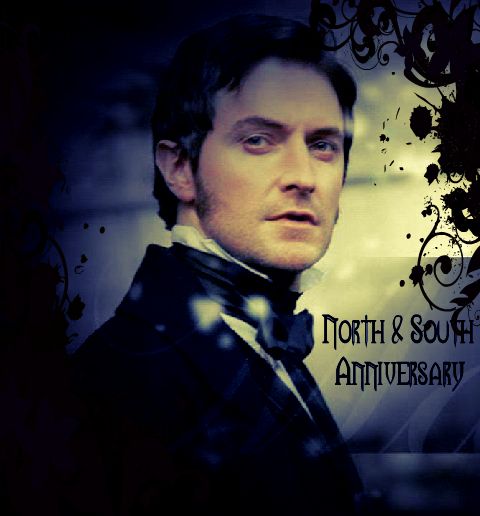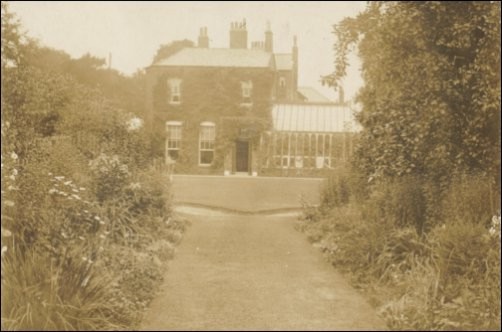It’s been a year since I watched first North & South, and I’ve decided to celebrate!
The next couple of posts will be related to this mini-series.
It’s not like I haven’t written about it before, but I hope to mention a few things I have observed the many times I’ve re-watched it.

I’ll start by something a little more personal.
I was raised in Manchester, though I often joke with RA fans that it was Milton.
Of course, the post-industrial reality of my upbringing differed significantly from the one we could observe in the series.
It was this city where Marx and Engels cooked up the Communist Manifesto.
Manchester was also the original industrial city, leaving London far behind during the Industrial Revolution.
It become the largest centre of manufacturing in the world, a place where ambitious, people could make a fortune and make a name for themselves.

Chimneys and factories were larger and loomed over churches and palaces. The air was polluted, and the city was shroud in a cloud of smog.
The shocking rise in the industrialised society in the 19th c. were evident in the horrible conditions caused by the rapid and uncontrolled development.
Manchester was an example of what to avoid when industry in he United States started becoming more significant. The idea was for the US to remain a pastoral landscape, with farmers growing cotton, and leaving the filth of the industrial world to the British.

The masters of the mills built fine residences and libraries, but the workers conditions were dire. They lived in shacks scattered around the factories. Outbreaks of illnesses like cholera were common, and the death rate of infants was over 50%.

The death rate was connected to wealth.
The workers were weighed down by poor wages, impossibly long working hours, dangerous and unsanitary working conditions. The working day lasted on average 14 hours, although without any laws restricting the amount of hours, the mill masters that often forced their employees to work longer.
There was little or no health provisions.

Working class children played an important role in the economy of Manchester. As they were paid ten times less than adults, they were eagerly hired.
The youngest children were employed to crawl beneath machinery while still in operation. They had to gather up loose cotton, and many died by getting caught up in machinery. Those who did survive to adulthood had permanent stoops or were crippled from the prolonged crouching.

There was little sympathy for the ‘under class’, as the attitudes tended to be laissez-faire.
Acquiring wealth was seen as a sign of virtue, therefore, the poor were bad, and the rich were good.
Through hard work one could be expected to be rewarded by an increase in wealth. As much as the elderly and widows could expect aid, the unemployed were seen as lazy, and could expect no such help.

My experience of life in Manchester, over 100 years later, was of course different, although I do like looking through pictures from the Victorian times.
I was raised in a middle-class residential area of The Greater Manchester area called Northenden, which was mentioned as Norwordine in the Domesday Book of 1086.
Despite the urbanisation process of the 19th century, Northenden remained predominantly rural area, but later absorbing the overspill of southern Manchester
I remember my childhood, like most do, in idyllic terms, with my primary school at the end of the road, garden parties at the Old Rectory (picture above), Bonfire Night fireworks, events at St. Wilfred’s Church.
These are very fond memories, indeed 🙂











Excellent!! I also love History and had to study a little bit to understand the literary movements and plots in general (I have a degree in Literature, but never worked with it)!! Going back to N&S, the first thing that called my attention wasn’t Mr. Thornton, but the traces of the industrial revolution…. I just began to really find MT interesting in the 4th part… then I had to watch the series again and… the madness began… lol
By the way, I must have been nice to grow up in place full of history and be able to see/visit places where so much has happened!!
I don’t think I really noticed the history of the place where I was raised. I remember being impressed with the Roman history of Britain, and I still wonder why they are seen as invadors, and not a culture that had shaped Britain for centuries. I remember visiting an old mill as a child, but the theme was more ‘cotton, how wonderful’ than ‘poor workers’.
I once watched a documentary about the birth of your country. It shook me to the core. I realized how ignorant I was about that part of the world. And I cried while watching. A lot. It compared slaves bought over to the US and those who ended up in Brazil. It was very moving.
You remind me of when I visited Athens (around 6.000 years of history). OMG!!! It’s too much for a South American who has just 500 years of history!!! By the way, for me, Brazilian history is a mixture of horror and bad comedy!!! Well, but certainly knowing our history explains why we are the way we are today!!!
I’m Polish. Don’t even get my started on our history! Although it does explain why we are this way too! That’s what I admire about the US. For such a young nation, they’ve had a very bloody history, and yet they were able to create a country that, for many years, dominated the global political, economic, and cultural scene. And although they are going through very hard times, it’s interesting, from a European point of view, to watch how they adjust to the reality of the 21st century. When I tell people I study American culture, they think it’s all Elvis and hotdogs. There are so many different elements at play, and it’s a fascinating topic.
I suggest N&S to my profesor, who lectures in 19c. American Cities, as we were talking about how the US tried to avoid the mistakes made during the Industrial Revolution in England. It turned out that she knew the series very well. I’ve planned a series of posts for the next couple of days that deal with reality in Manchester in Victorian times. It’s very time-consuming, but I’m learning a bundle 🙂
My first reaction to Thornton standing above the workspace was Whooooo! Then he beat up Stevens, and my enthusiasm dropped to zero. No romantic hero would get into a fist fight over a pipe. A lady, pehaps, but not smoking. But then it was all hearts and kisses from that point on!
I’ll look forward to your next posts!! 😉
Thanks Luciana, it’ll be connected to my favorite family- The Thorntons 🙂
This was an amazing explanation of the real story behind the fictionalized North & South. Thank you for sharing it!
Thanks 🙂 I’m glad you enjoyed it. I’ll be posting on N&S, Milton / Manchester, the Industrial Revolution, fashion and such, for the next few days. I’m trying to learn something new every day!
Thank you for sharing this post, I remembered my school days. About this subject, there has always been something that intrigues me, what would have happened if there had not been Industrial Revolution? We’ll never know, but the truth is that because of this event, the world is how it is today.
PD. Congratulations on your anniversary, a life changing event, right? 😉
Glad you liked it, Vec 🙂 It really was life changing and it just seemed right to mark the occasion!
I can’t really see our society not undergoing the Industrial Revolution. It was necessary, because a lot of good came of it. I hope we’ve learned our lesson in some regards, like child labour and the inhumane conditions of workers. We shifted from capitalism and we’ve entered the neo-liberal phase, but I’m always mindful that in parts of the world like Asia, they have still to stuggle to learn.
Pingback: My North & South Anniversary. Dinning at the Thorntons « I Want to be a Pin-Up
Pingback: My North & South Anniversary 4/7. The Dying Man and the Industrial Machine « I Want to be a Pin-Up
Pingback: Legenda 34: Stuff worth reading « Me + Richard Armitage